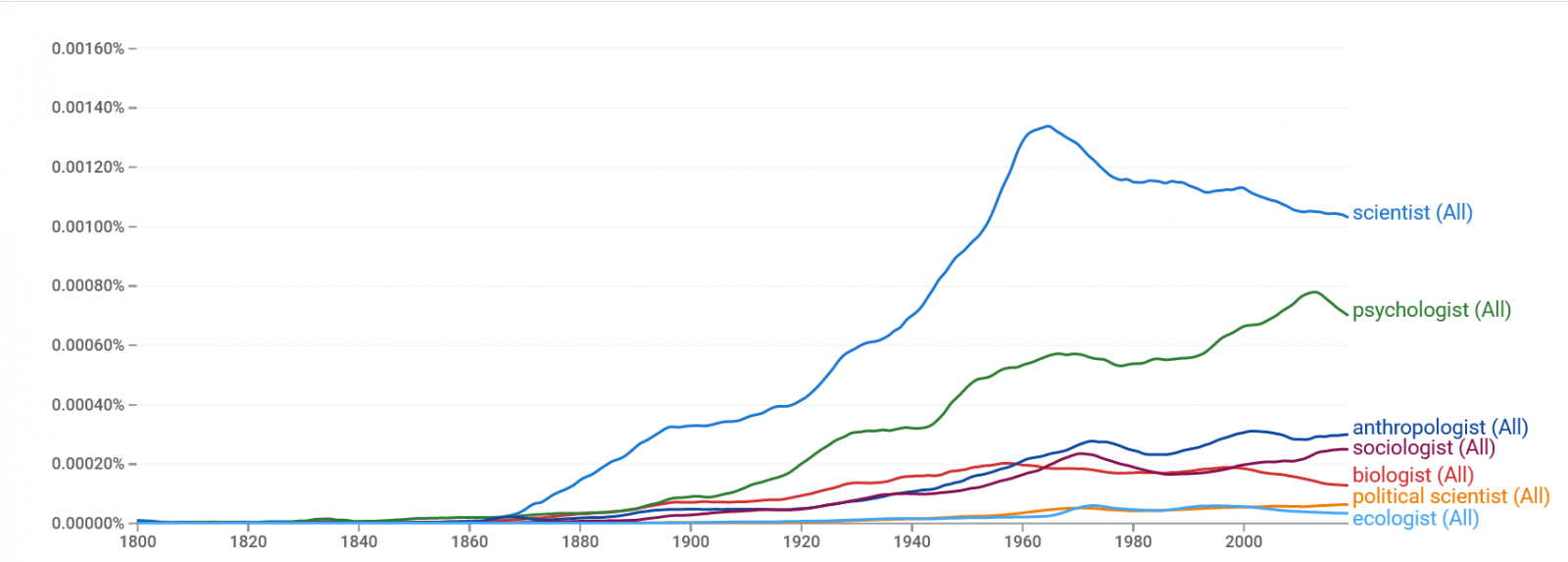
One of my hopes for this blog is to present, in short essay form, a collection of thoughts and reflections designed to shed some light on the foundations of the contentious cultural discussion sometimes referred to as the religion-and-science debate. This theme will be ongoing as the size of this topic, the ground to be covered in terms of the origins, history, and variety of definitions these words currently embody, is perhaps only matched in scale by the cultural weight that is being placed on them. Covid policy, education reform, crime and punishment, LGBTQIA+ issues, racism, evolution, and abortion are just a few of the current flash-point topics that quickly jump to mind. Indeed, it is hard to think of controversial issues of the day that do not, ultimately, draw their lines of cultural tension by pitting the language of science against the language of religious or personal values. But instead of adding to the surface level noise by addressing particular issues using the logic and language of our modern culture, this blog aims to go deeper and to dispassionately look at the roots of our dialog problem.
The History of Words
This first essay will chip away at a wall built on a false narrative. Specifically, I’m referring to the widely held belief that the terms “religion” and “science” represent two fundamentally different conceptions of reality that are locked in a long-standing, winner-takes-all contest for our culture’s soul. One term is about tradition, God, and good versus evil, while the other is about reason, evidence, and progress. This “conflict” narrative is, plain and simple, a false (and poisonous) one. It was strategically assembled for political purposes in the wake of the enlightenment. And now we find ourselves living in its’ shadow. This wall now separates us one from another and even draws up lines within individuals. But if we are willing to roll up our sleeves and do some work investigating it brick by brick, we can hope to disassemble it and replace it with something much more in keeping with an accurate history; something that allows for a greater integration of the various ways humans are pursuing truth.

In service to that end (and I’ll look at one aspect of the wall from the “science” side in this essay), you might be surprised to learn that many of the terms we use to describe those who have been professionally trained in the scientific method are not that old. In particular, let’s focus on the term “scientist.” It wasn’t until 1834 when Oxford professor, William Whewell, coined this new word. The term “science” had emerged in its’ more modern form a bit earlier (as had the term “religion”), but those who “did” science did not have, according to Whewell, a name worthy of their unique vocation – one that more properly set these professionals apart from other academics. Wishing to create distance from the more generic term “philosopher” (and wisely rejecting other offered terms such as “nature-poker” and “nature-peeper”), Whewell landed on the term scientist. The Ngram included here well-reflects the arrival of this word in print as it shows the percentage of English-language books per year that contain, at least once, the use of that term. (I’ve also included other labels used by professionals in various fields of the life and social sciences to demonstrate the recency of many of these words.)
Some may object and suggest that although the professional title is relatively recent, the work of people before that time, like Copernicus, Galileo, Boyle, and Newton, was such that we are justified in assigning the term “scientist” retroactively to those who operated and thought like modern-day scientists. But this would be a mistake. It is highly unlikely that any of these folks would have called themselves a scientist as the term is used today. Newton, for instance, called himself a natural philosopher. And to him that meant (according to his own description in the Principia1), that he is to be about inquiring into the first cause of the universe and other similar types of questions. Furthermore, he argued that when one does this inquiry, they discover that something as magnificent as the system of planetary motion could only have come from the counsel of a wise God. I do not think a contemporary scientist would consider what they are doing now as something akin to Newton’s natural philosophy. For one thing, natural philosophers retained an element of internal moral growth associated with their study of nature. Knowledge of nature was a means by which one could and should improve one’s character, one’s own inner nature. Secondly, modern scientific thinking has restricted itself to naturalism, at least methodologically-speaking. This qualifier has necessarily limited their realm of investigation as well as their realm of reference. Newton, to the contrary, was a self-proclaimed philosopher of nature. He considered his work to be, at least in part, about God, whereas modern scientists do not. The 19th century invention of the term scientist fits well with the growing desire to create a separate professional identity functioning outside the reach of philosophy and theology. It was a deliberate break from the past; a wall of separation intentionally constructed.
However, this new professional conceptualization needed legitimization. Enter the false narrative. Not unlike a politician seeking to gin-up patriotism by peddling a fictitious “glorious past” national narrative, many secularists in the 19th century, desiring to create a professional identity free of external constraints, co-opted historical figures like Copernicus, Galileo, Bruno, and Newton, refashioned them into their service, and manufactured the warfare motif. Thankfully, the sledgehammers are finally being leveled against this false narrative, but unfortunately much damage has already been done. This “science versus religion” construction is now well entrenched in our vocabulary as well as our cultural imagination. (Furthermore, ideologues on both sides benefit from this configuration and, thus, have reason to perpetuate it.) Can we free ourselves from this distorting constraint? Perhaps so…but it may take the removal of one brick at a time.

More reading for those who are interested might include the titles listed below. My vote for “pick-of-the-litter” might be Harrison’s “The Territories of Science and Religion.”
- John Hedley Brooke: Science and Religion: Some Historical Perspectives
- Jeff Hardin, Ronald Numbers, Ronald Binzley: The Warfare between Science and Religion: The Idea that Wouldn’t Die
- Peter Harrison: The Bible, Protestantism and the Rise of Natural Science; The Territories of Science and Religion; The Fall of Man and the Foundations of Science
- Jason Josephson-Storm: The Myth of Disenchantment: Magic, Modernity, and the Birth of the Human Sciences
- Ronald Numbers (Ed.): Galileo Goes to Jail: and other Myths about Science and Religion
- Matthew Stanley: Huxley’s Church and Maxwell’s Demon: From Theistic Science to Naturalistic Science
References:
1Newton, I. (1713). Philosophiae Naturalis Principia Mathematica (2nd Ed.), Cambridge.